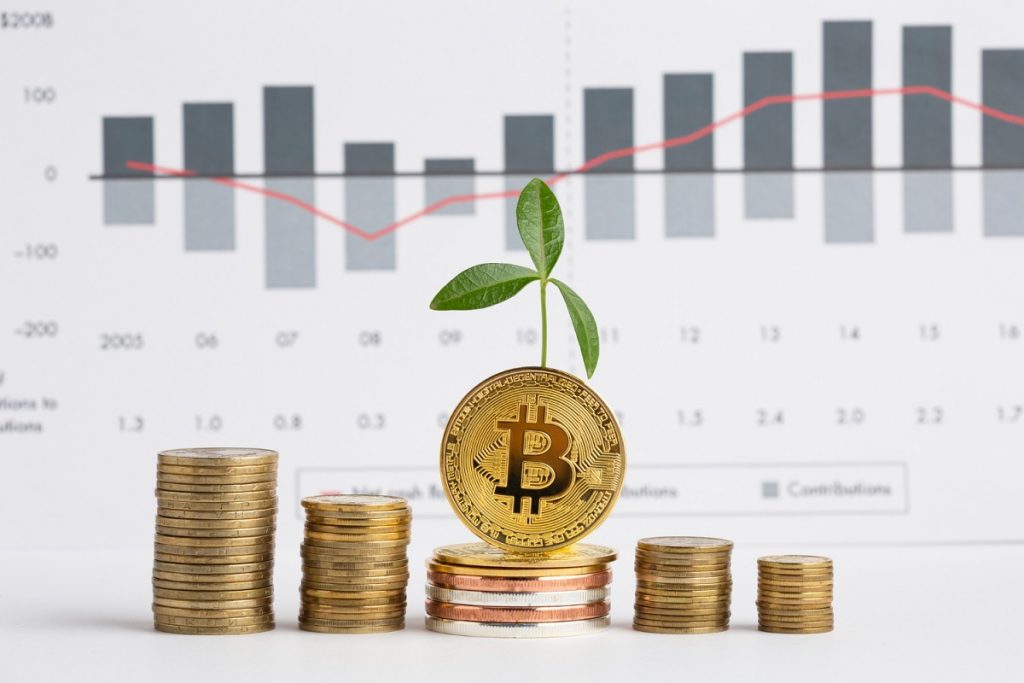Table of Contents
Bitcoin has shifted the way currency exchange works in a digital era. However, notorious Bitcoin scammers are a cry for concern. Learn more about BTC here!
We have come a long way in terms of our civilization, right from the barter system as a mode of transaction to a new age where digital currency is on its way to dominating the world.
In ancient Greek and Roman civilizations, a reliable and standard means of carrying out transactions was envisioned and crafted. It was a huge relief for them, as now they had something that could be quantified in terms of the value of the goods and services. The barter system soon became a chapter in the history of human civilization.
The Greek and Roman empires started to use precious metals like gold, silver, and bronze, with each having a specific value. Thus, transactions became easier as certain values of goods and services could be derived.
However, many unscrupulous people started chipping off the edges of these coils, melting them, and making counterfeit coins. Thus, this kind of corruption started to become the norm, and the standard size of these coins started shrinking.
The Greek and Roman empires had no way of controlling this corruption in currency. And so the downfall of these empires began.
Fast forward to a few decades ago, when governments in each country had the value of their currencies backed by gold standards. They had the sole authority to print or withdraw currencies depending on the gold valuation in the market. Paper money and coins were the norm for buying goods and services.
Things changed in the 1970s when Richard Nixon delinked the gold standard-backed currencies and fiat currencies came into existence. The rest of the world started to follow in the footsteps of the United States; they too gave up their currencies backed by gold standards.
In the 1950s, the first credit card came into existence when the Diners Club card started becoming popular in advanced economies. Slowly and steadily, many countries started adopting credit cards, also called plastic money.
The reliance on such plastic money started a revolution in the currency industry as more and more people started adopting credit cards. The use of physical cash started to decline. Today, most transactions are cashless.
The idea of digital currency came into play after the collapse of the economy in 2007. As the entire world is connected through the internet, overseas transactions for goods and services have become cheaper and faster. The world is indeed a global village. Thus, the 2007 recession in the United States had a global impact.
The 2007 economic crisis was a result of the mismanagement of monetary funds, and some experts point out that, to a certain degree, it was human greed that put the entire globe under financial hardship.
It was during this period that Satoshi Nakamoto, an anonymous computer programmer, came up with the concept of a digital currency and created Bitcoin. Bitcoin has revolutionized the entire globe in the past few years. To this date, it is unclear whether Satoshi Nakamoto is a single individual or a group of people. Today, there are several other cryptocurrencies in the crypto markets.

Why the need for Bitcoin?
Many would argue why anyone would require a digital currency like Bitcoin since the entire world is carrying out its financial transactions using payment gateways like PayPal, Venmo, G-Pay, and so forth.
As we mentioned about the fall of the Greek and Roman empires, it has been confirmed by many experts that the fall began with corruption in the financial institutions.
Since the 1970s, the amount of debt held by the United States has been gradually increasing. After the COVID-19 pandemic, the debt owned by the US government has skyrocketed. The ability of the US Federal Reserve to print money out of thin air has made the US dollar weak.
The cost of a chocolate bar in the 2000s is higher today. Thus, the ability to print unlimited money has been the root cause of the inflation to which we are subjected today.
Satoshi Nakamoto envisioned what we are facing today and came up with the idea of a cryptocurrency.
What is Bitcoin?
Bitcoin is a cryptographic, algorithmic string of alphanumeric codes that is based on blockchain technology. Like in books of accounts, transactions are recorded in the ledger; each block records the transaction details of credit and debit. When the block is filled, the new transaction is recorded in another block. Since these blocks form a chain, it is called blockchain technology.
Unlike the Federal Reserve, which can print limitless money, the number of Bitcoins will be limited. Bitcoin runs on the principle of precious metals like gold. Bitcoin’s finite supply will result in the required fluctuation in prices to combat inflation, as it cannot be backed by gold. The number of Bitcoins will always be 21 million.
What is so special about Bitcoin?
When a transaction takes place between two individuals, the details of the sender and receiver are verified by the two banks. These details are sent to the central bank, which verifies the transaction and records the details.
When you transfer your money from one country to another, the entire process repeats; however, the central banks will first interact with each other, providing the details of the sender and the recipient.
There are transaction fees that are levied regardless of whether the transaction is within or outside the border; you need to pay for them. The transaction of cash also takes a lot of time.
Bitcoin offers quick transfers of financial funds through borderless transactions while maintaining the anonymity of the sender and the recipient.
Another crucial factor is that when transferring money from one bank to another, it runs on a centralized network, with governments overseeing the transactions. Bitcoin, on the other hand, runs on a decentralized financial network.
A decentralized network has several nodes where each account is authenticated and verified. These transactions offer transparency while maintaining the anonymity of the users.
On a centralized network, transactions can be manipulated by the government’s ability to allow or block certain transactions. They can even deny you access to their bank account if they wish, if you have different ideologies.
A few months ago, Nigel Farage, a British lawmaker, had his account suspended by the Coutts due to his different ideology. The financial institution went as far as canceling his bank account.
Bitcoin under flak
Contrary to the belief that Bitcoin users remain anonymous, this is false. Each Bitcoin or crypto user has two keys that are similar to your email address. The private key is used to send Bitcoin or other cryptos, while the public key is used to receive them.
The names of the users can be traced if you have any one of the keys. The idea of remaining anonymous means that these keys are alphanumeric, making it difficult for anyone to know the true identity of a person whose transaction is verified and open for public display. But despite the encrypted system, some notorious Bitcoin scammers still manage to disrupt its security.
For this reason, governments are against Bitcoin and other cryptos because they want your financial information. And they have popularized the idea that Bitcoins and other cryptos are used by criminals to launder money.
Final thoughts
The fact that governments across the world oppose the idea that anyone can amass wealth without the government’s knowledge is quite upsetting for them.
Since the central bank comes under the government, it knows the exact amount of money held by the sender and the receiver and the exact amount of money transferred. A conspiracy theory that governments across the globe want to control how you spend money is becoming a reality.
In China, the ruling government controls its citizens’ monetary freedom. Many experts believe that after the surveillance of Chinese citizens became the norm, many developed countries have adopted their model. They fear that their government will also control them, as the Chinese government does. To counter Bitcoin and other cryptos, governments are in the process of creating their version of digital currency.



